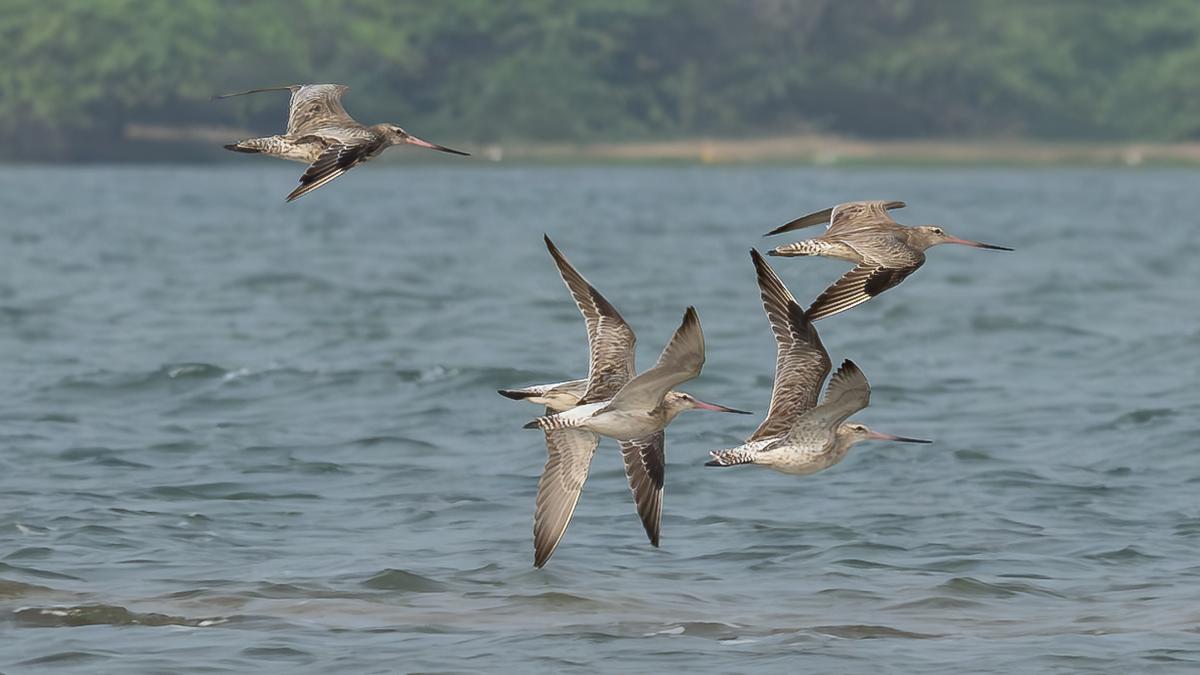
Five bar-tailed godwits spotted at Pulicat, much to the excitement of birders
The Hindu
Rare sighting of five bar-tailed godwits at Pulicat lake prompts research on possible reasons behind their unusual behavior.
In the early hours of November 11, city naturalist S Venkatraaman, better known as ‘Poochi’ Venkat, spotted something unusual at the Pulicat lake. Five bar-tailed godwits were sitting together on a landmass inside the lake. “It is very rare to see the birds together,” observed Venkat, adding that he shared the photographs he shot with experts from the Madras Naturalists’ Society (MNS).
Bar-tailed godwits have been spotted in the region before, but not as a flock of five. “These are waders that are known to travel long distances at a stretch,” explains Subramaniam Shankar from MNS. “They fly up to 25,000 kilometres,” he adds: “Their digestive organs shrink after being loaded up with fat to extract energy for these long travels.”
The small birds with long, sharp beaks, are supposedly “audacious”. “At their breeding grounds, they are known to constantly fight over territory,” says Subramaniam. Their call is onomatopoeic, which means it sounds similar to their name, going ‘godwit, godwit’. Subramaniam says that their exact migratory route is not known, and that they are observed on intertidal flats and saltpans with some greenery all along the Indian coast through the year. “I have seen individual birds before, but not a group,” he adds.
The reason why the birds were spotted together is a subject that requires research by ornithologists, Venkat says. “It could be due to climate change, displacement due to their forest area getting affected… this has to be analysed,” he says. On the day they were spotted, the tide was high, reducing landmass over higher areas. “However, our boatman, who is an expert in birding, told us that this was not the reason why the godwits were bunched together. He too had never encountered such an occurrence,” he adds.
Venkat and his friends travel during the first week of every month to Pulicat to document birds. While he is known for his expertise on insects, he has now ventured into birding and studying fauna as well. “With a lot of development going on around the place, we are not sure about the future of Pulicat lake,” he says, adding that the same is the case with waterbodies around Mamallapuram.











